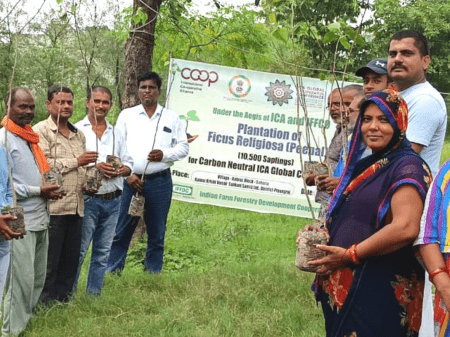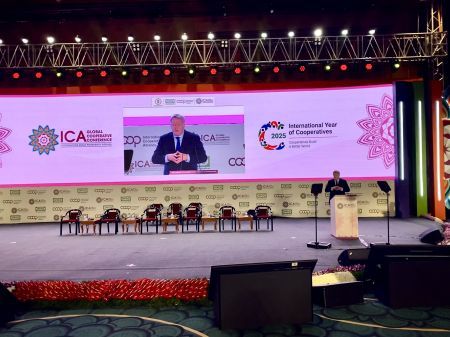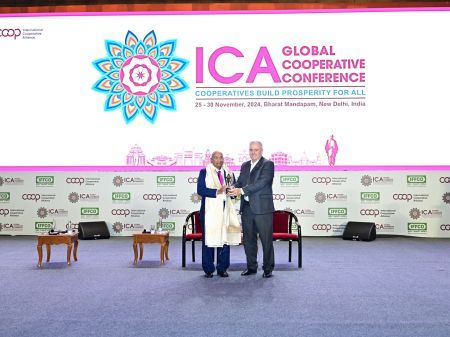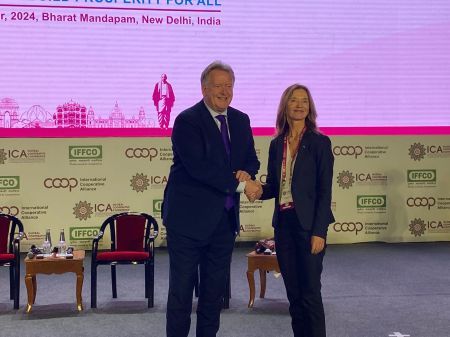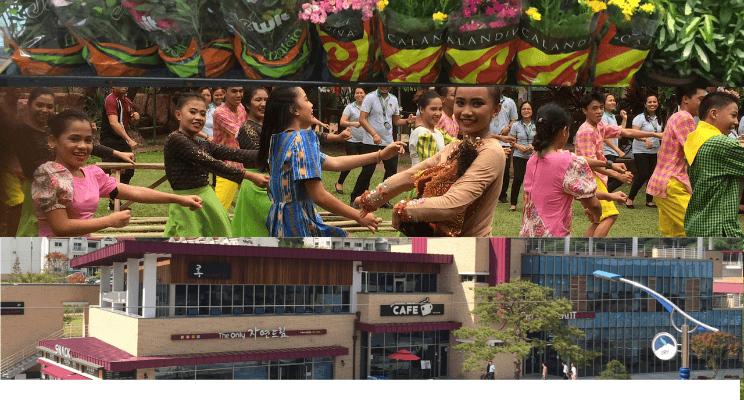
By Balu Iyer
A resort with a wave pool in Cebu, Philippines; a Natural Dream Park in Gurye, Korea; a modern flower auction facility in Holambra, Brazil. What do these diverse activities in different cities have in common? Co-operatives? Yes! But, that is not the only reason they are connected. These are fine examples of co-operatives not just engaging in an activity but building a thriving community.
Why should the luxury of lazing by the pool or enjoying the waves in a wave pool be just the pastime of city folks and the well-heeled? Why can’t our farmers enjoy downtime with their family in resort settings? These were the thoughts the board and staff of Lamac Multi-Purpose Co-operative (LMPC) in Barangay Lamac, wrestled with when deciding to build the Hidden Valley Wave Pool Resort.
LMPC has invested in a farm where youth are trained in organic farming, provided a space where they can meet and which will form part of the tourist attraction.
What does it take to get a young person to rural areas? A Rock festival for sure! Agriculture? Not so sure. This is what iCOOP Korea is trying to do. Making agriculture and allied activities an attractive option for youth to stay in rural areas, provide a space that has all the amenities they are looking for, and promote a culture of caring for the environment. The Gurye Natural Dream Park uses renewable energy and the facilities include accommodation, medical centre, movie theatre, restaurant, café, sauna, meeting rooms, etc.
Holambra, a city of 13,000 accounts for 45% of all flower production in Brazil and can rightly claim the title of Brazilian Flower Capital. Here, the modernCooperativa Veiling Holambra headquarters can be considered the presidential palace! Spread across 80 hectares, with constructed facility of 79,000 sq.m, and electronic trading and online information to clients and partners this building is a tribute to the co-operative business model.

